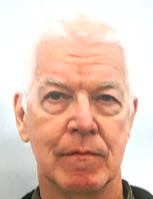I don't write about politics or international affairs much. That is, I try not to. There is another area of concern that makes it seem superficial. And it would be surprising anyway if I could come up with something that has not already been considered, within the bounds of the popular discourse.
The popular discourse, of course, is a very strange space. It was once heavily influenced by newspapers, but they have been superseded by "social" media, which has orders of magnitude more leverage on what we think and talk about, even extending to what we can see with our own eyes. A medium driven by an aggressively manipulative agenda that has nothing whatsoever to do with anything social.
The conversational bubbles in this poisonous froth isolate talk of political parties run amok, an impending final showdown with Russia and China, fixing climate "change" by 2050, pedophile lizards from space running the government, anything and everything that gets attention. But between the bubbles, silence.
For example. The devastating fires, floods, storms, droughts, wars, and famines that are upon us in full force right now; the dire consequences of fossil fuel combustion; the real danger of nuclear holocaust; talk about reaching carbon emission goals "by 2050"; or what the stock market is doing (much less the economic logic that drives all this); all have about equal weight as attentional commodities.
But the real and present global ecological collapse, of which these are but symptoms, puts a sell-by date on everything. Because soon enough very damn few of us will be in any condition to pay attention to anything not directly related to our immediate personal survival.
The trouble has to do with networks. Network science now explains how information moves across social hubs to reach remote nodes incredibly fast. It's how come you are only four steps now (it was six) from Kevin Bacon, the actor who is famous for being that close to every person on this Earth. It's also how Covid swept the globe in under a month.
What if that structure is lifted off the human network and assigned to another purpose? All those human relationships replaced by the "social" machinery, forming a new network. The natural, emerging, interrelated, moving network of living human conversations hijacked by "social" media, and rearranged, so that the hubs are no longer people, but competing click-baits. What then?
This new network is static and opaque, the relationships proliferating but superficial, connected by whatever gets the most momentary attention. The platform, and not any person or community, finds this extremely profitable. But the people who were once related are now merely linked by some trivial attractant ephemera, with no way of knowing what happened.
Our relationships, not to each other, but to a meaningless shiny thing, when combined with millions of others, now move public policy; but our warm, breathing relatedness within the living human family just evaporates. All that's left is grainy pictures and noises from the past.
These new networks are designed to realize a parasitic intention that has nothing to do with human life, or a viable future. The metaphors that fit are all dreadful, like trauma, abuse, addiction, denial, and depression. But they fit our condition all too well. And the more efficiently they fulfill their design function, the more our world collapses around our ears.





